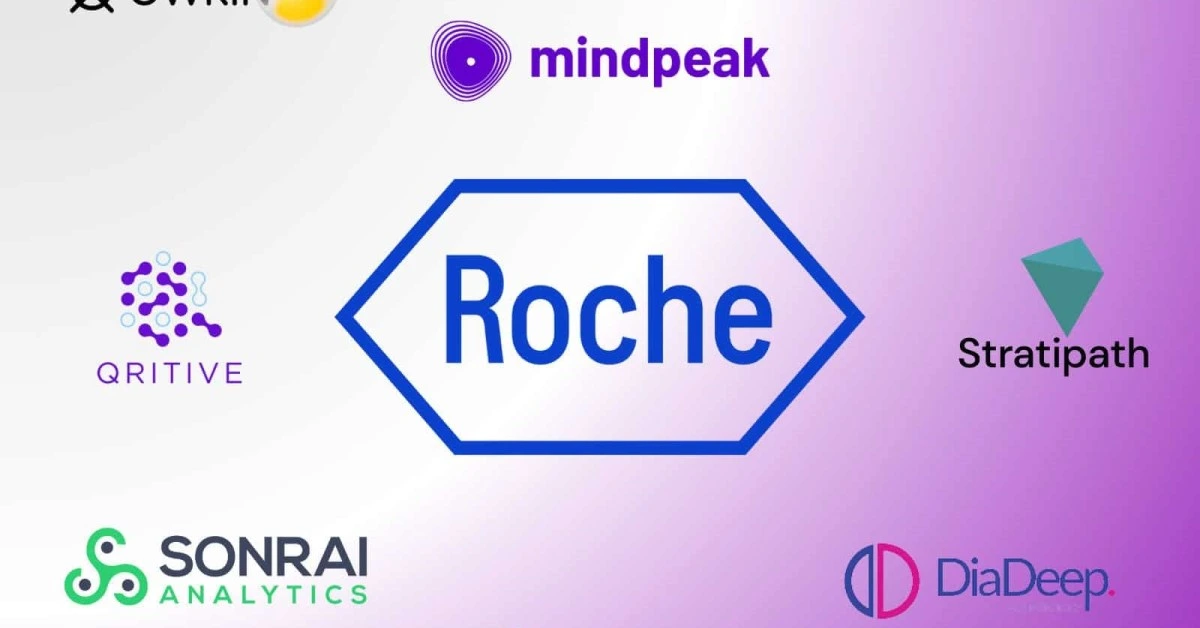
SWITZERLAND – Pharmaceutical leader Roche has announced a significant expansion of its digital pathology ecosystem by incorporating more than 20 artificial intelligence (AI) algorithms developed by eight new collaborators.
This strategic move aims to revolutionize cancer diagnostics and research by leveraging cutting-edge AI to support pathologists in delivering precise, targeted care.
The expansion is facilitated through Roche’s navify Digital Pathology enterprise software, which acts as an innovative platform allowing seamless integration of third-party AI tools.
This digital environment ensures pathologists have access to a wide range of advanced algorithms, enhancing the analysis of high-resolution tissue sample images.
“We are excited to welcome these new collaborators into our digital pathology ecosystem,” said Jill German, Head of Pathology at Roche Diagnostics.
“By combining our leadership in tissue diagnostics with a broad offering of state-of-the-art AI technology, we aim to revolutionize cancer research, diagnostics, and treatment, ultimately helping clinicians improve the lives of patients worldwide.”
The Power of AI in Pathology
AI in pathology has transformed how tissue samples are analyzed, providing pathologists with deeper insights and improving diagnostic accuracy.
Roche’s integration of external AI algorithms into its navify® platform enables more nuanced interpretation of tissue samples, leading to precision medicine and targeted treatment plans for cancer patients.
The new collaborators include:
Roche’s digital pathology open environment explained
Roche’s open environment approach is akin to an app ecosystem where third-party developers can contribute their AI innovations to enhance existing solutions.
The navify® Digital Pathology platform acts as the central hub, connecting Roche’s advanced slide scanners with these AI algorithms.
Katie Maloney from DeciBio likened this strategy to an “App Store” model, where Roche maintains control over its proprietary hardware while inviting external innovations, positioning itself as a leader in the digital pathology market.
With the integration of over 20 specialized AI algorithms, Roche’s navify® Digital Pathology platform promises to transform the landscape of cancer diagnostics.
This expansion not only supports pathologists by offering sophisticated tools to improve workflow but also fosters a collaborative ecosystem for continuous innovation.
The strategic use of AI in digital pathology empowers healthcare professionals to make more accurate and timely diagnoses, facilitating better patient outcomes and advancing the future of precision medicine.
Recent developments in Roche’s innovation strategy
The integration of AI into Roche’s pathology platform aligns with the company’s broader initiative to enhance medical technology and foster collaboration.
In November, Roche marked a significant milestone by inaugurating its new Pharma Research and Early Development (pRED) Center at its global headquarters in Basel, Switzerland.
This center was designed to promote a collaborative environment for scientific discovery and research that prioritizes patient needs.
Earlier in August, Roche expanded its partnerships by collaborating with diabetes management software company Glytec, enabling the integration of Glytec’s insulin-management software with Roche’s cobas pulse point-of-care glucose system
In January, Roche further bolstered its diagnostic capabilities by agreeing to acquire point-of-care technology from LumiraDx for US US $295 million, along with an additional US $55 million allocated for ongoing platform development.
Additionally, in 2023, Roche’s subsidiary, Genentech, entered a partnership with health technology company PicnicHealth to accelerate neurological disease research through real-world patient data.
XRP HEALTHCARE L.L.C | License Number: 2312867.01 | Dubai | © Copyright 2025 | All Rights Reserved